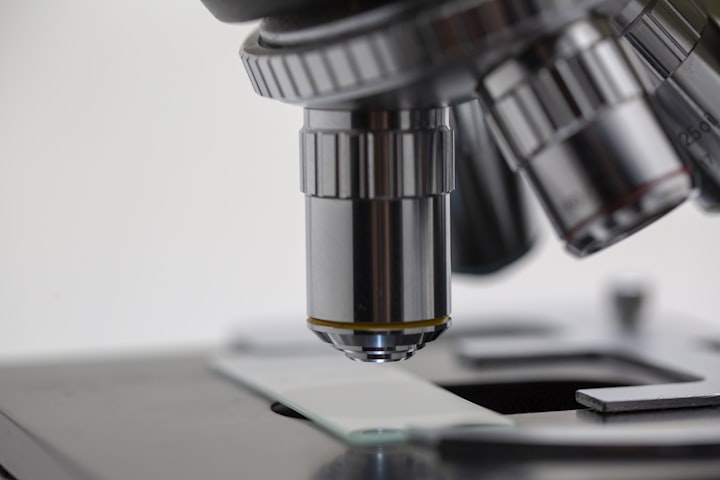Transgender Biology
Why I Don’t Fear Biological Evidence

Debates continue to rage within and without the LGBTQ community whether the concept of gender identity even exists as something separate from our biological sex. If it does, then transgender and nonbinary people are valid and not merely mentally ill. Yet, any scientific studies into whether there is a biological component behind being born transgender worries many people within the transgender community.
Brain Scans
A study conducted in 2014, titled Structural Conductivity Networks of Transgender People¹, demonstrated through the brain scans of both transgender men and women, and comparing them to the brain scans of cisgender men and women, that transgender brains differ from those of cisgender brains in measurable ways.
Another study, conducted in 2018 by Dr. Julie Bakker², demonstrated that transgender brains more closely resemble the structure of the brains of their identified gender, than they did of their biological sex. While there are conflicting studies³ ⁴ on whether cisgender men and women have structural differences in their brains, the fact that transgender brain scans show distinct differences from their cisgender counterparts must mean something.
These studies imply that there is clearly something structurally different in transgender people’s brains. Exactly why those structural differences exist, and how that relates to transgender people experiencing gender dysphoria is not entirely understood, yet.
Genetic Markers
In a study conducted in 2019, researchers from across four different institutions looked at the Genetic Link Between Gender Dysphoria and Sex Hormone Signaling⁵. There they examined the DNA of 380 transgender women and 344 cisgender male subjects. In the study, “a significant association was identified between gender dysphoria…” and several genetic variants within the transgender women’s DNA.
This leads to a hypothesis that gender dysphoria may have an oligogenic component, meaning it could be an inherited trait from a single causative gene. Since there are several genetic variants, it points to a variety of genes being involved, each one expressing a different trait that together could lead to gender dysphoria.
What Does This Mean?
At this stage much more research is warranted. However, the results of these studies are intriguing and if proven true, could destroy the argument that being transgender is merely a mental illness. However, there are some within the transgender community who find this worrisome.
If there is a biological component to being born transgender, then some fear that it would lead to further gatekeeping from the medical community. The process of treating gender dysphoria is already a lengthy and expensive process that many transgender people cannot afford. If more expensive genetic testing or brain scans were ever mandated to get a diagnosis, it could make treatment even further out-of-reach.
While that is a legitimate concern, there is an even more deep-seated fear. Many transgender people struggle with self-doubt regarding their identities, even after years in therapy. The niggling worry would be, what if these tests proved they aren’t transgender?
All the research so far has been performed on binary transgender people. Looking at all the nonbinary variants within the transgender community is a more complex issue and they would need to be better understood. It’s not known if they would have genetic variants or brain structure differences similar to binary transgender people, binary cisgender people, or somewhere in between.
Why I Don’t Fear Further Scientific Studies
I know I am speaking from a place of privilege when I say I don’t fear this line of scientific inquiry into being transgender. I have already transitioned, and no amount of gatekeeping can make me go back to what I was before. However, that’s not why I don’t fear it.
Call me an optimist, but I believe that having a better scientific understanding of why transgender people exist can mostly lead to positive things. For one, it will nullify the argument that gender identity, as separate from biological sex, does not exist.
One recently formed group in the UK, calling themselves the LGB Alliance, unequivocally states: “We oppose the teaching in schools that everyone has an innate ‘gender identity.’ This is not factual but an unproven and unscientific belief.⁶”
Arguments like that do more harm to the transgender community than any scientific research ever could. Is there a danger that by understanding the genetics behind being transgender could lead to scientists either trying to find a cure or worse, a way to prevent a fetus from ever developing transgender genetic traits in the first place? Yes, of course. Not all scientists are ethical.
However, that doesn’t mean we couldn’t or wouldn’t fight back if that happened. When it was recently announced that Iceland may have cured Downs Syndrome, making it possible for no children to be born with that rare genetic condition, it came with mixed reactions⁷. Some cheered the breakthrough, but many disability advocates, some with Downs Syndrome themselves, argued against their kind being cured out of existence.
I think many people would stand with the transgender community if there was ever a discovery that would lead to trying to cure us out of existence as well. Yes, there will always be some part of the population that would like for us to not exist, but they are a vocal minority. I have never hidden the fact I’m transgender and while I certainly run into people online who spew their hatred at me, most people I meet are accepting of who I am.
I will admit I also have an insatiable scientific curiosity, so personally I would love for us to learn exactly why we’re born transgender. I think research into why we exist may also lead to a better understanding of gender and biological sex for everyone.
That’s why I’m more excited than fearful of what further scientific research will uncover.
Citations
Oxford University Press. “Structural Connectivity Networks of Transgender People.” The National Center for Biotechnology Information. September 12, 2014.
European Society of Endocrinology. “Transgender brains are more like their desired gender from an early age.” ScienceDaily. May 24, 2018.
“Male and Female Brains: Are they wired differently?” Psychology Today. April 25, 2019.
“Neurosexism: The Myth that Men and Women Have Different Brains.” Nature. February 27, 2019.
Multicenter Study. “Genetic Link Between Gender Dysphoria and Sex Hormone Signaling.” The National Center for Biotechnology Information. February 1, 2019.
Motherlode: Adventures in Parenting. “Should Downs Syndrome be Cured?” New York Times Blogs. January 11, 2010.
About the Creator
Grayson Bell
An autistic, gay, transgender man writing about LGBTQ issues, focused on the transgender community. (He/Him) http://graysonbell.net/






Comments
There are no comments for this story
Be the first to respond and start the conversation.